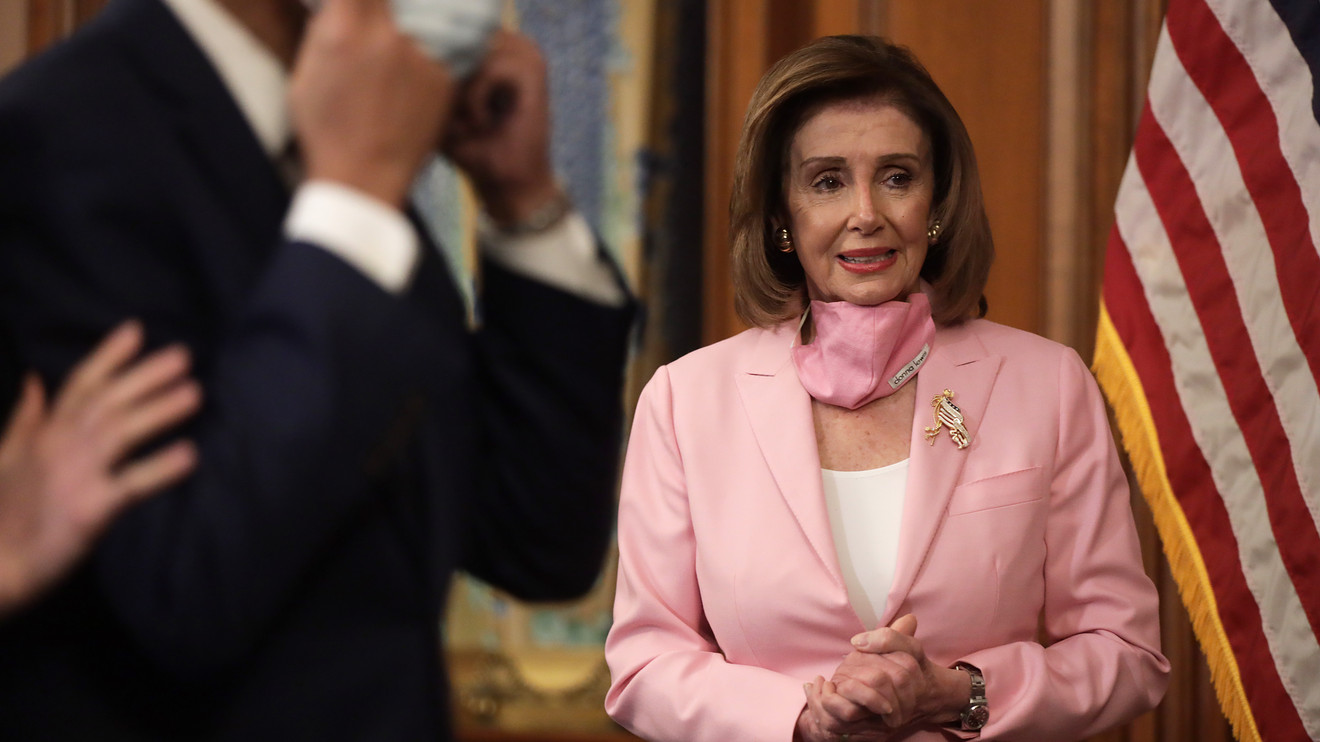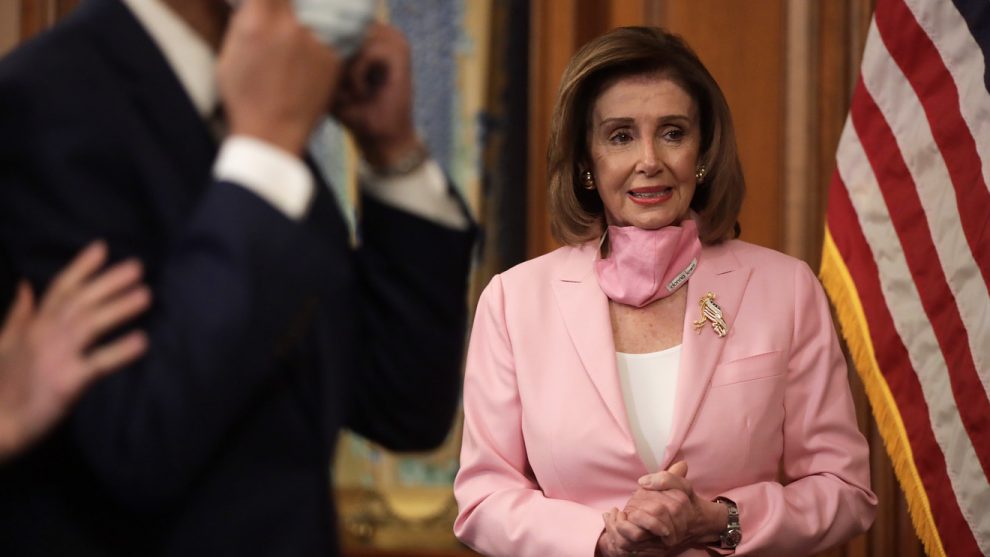
House Speaker Nancy Pelosi held a virtual roundtable with small-business owners and advocacy organizations Tuesday afternoon as the federal government’s program for supporting businesses with fewer than 500 employees was well on its way to exhausting the roughly $640 billion Congress has allocated to it so far.
The speaker said that she was working closely with fellow Democrats on efforts to reform the Paycheck Protection Program to ensure greater transparency and greater access by the smallest of small businesses, but she also stressed that Congress should be “expanding support beyond PPP to provide more resources” to the tens of millions of small businesses impacted by the COVID-19 epidemic, urging small-business owners to support a sweeping Paycheck Guarantee Act that would reimburse employers of all types and sizes for payroll and benefit costs.
The Paycheck Protection Program offers small businesses low-interest loans to cover two months of payroll and other expenses that can be forgiven in proportion to the level of pre-crisis employment maintained as of June 30. The loans are backed by the Small Business Administration, but originated by private banks, and the program has been dogged by accusations that banks were serving their largest and longest-standing clients first, leaving the smallest businesses and those most in need without access to aid.
Data from the Small Business Administration shows the average loan size has fallen to $79,000 after Congress authorized a second round of funding for the program late last month, down from $206,000 in the first.
Nevertheless, if new loan issuance maintains last week’s pace, the SBA will be set to exhaust new funding by Friday, when it will have issued roughly 5.6 million loans, which may not be nearly enough to meet the need for the 30 million small businesses operating across the country. A poll released Tuesday by the U.S. Chamber of Commerce showed that 47% of small business, or 14 million firms, say a PPP loan is critical to keeping their businesses open.
“There is an obvious need for continued financial support,” Neil Bradley, executive vice president and chief policy officer at the U.S. Chamber of Commerce, told MarketWatch.
Whether small businesses can expect more support of any kind remains an open question. Senate Majority Leader Mitch McConnell has expressed wariness over enacting new spending measures after Congress has already allocated nearly $3 trillion, and he and House Minority Leader Kevin McCarthy put out a joint statement Friday that they would not support another coronavirus bill unless it provided liability protection for businesses hoping to operate amid the coronavirus epidemic, a measure Democrats have said they would oppose.
Pelosi appears set to organize her caucus around a new bill that champions Democratic priorities, including a proposal by Rep. Pramila Jayapal of Washington that would authorize the Treasury Department to reimburse employers for 100% of their payroll and benefit costs up to $100,000 per employee as an incentive for all businesses, states and localities to maintain their pre-crisis levels of employment. A similar proposal in the Senate has been championed by Senator Mark Warner of Virginia, and others.
Pelosi urged small-business leaders on the call to make their voices heard if they “believe the Jayapal-Warner idea is a good one, because the road from 3 million to 30 million is a long one,” referring to the gap between PPP loans issued and the potential need on the part of small businesses.
There were still glimmers of bipartisanship Tuesday, with Democratic Senator Michael Bennett of Colorado and Republican Senator Todd Young of Indiana proposing a new initiative called the RESTART program aimed at providing longer-term support to small businesses.
RESTART would seek to “provide funding to cover the next six months of payroll, benefits and fixed operating expenses for businesses that have taken a substantial revenue hit during the COVID-19 epidemic,” according to a press release, which would address criticisms that the PPP allowance for two months of payroll expenses is insufficient to combat what has evolved to be a longer-lasting crisis.
The loan would be forgiven in proportion to the revenue losses suffered by the business in 2020, with the remainder repayable over a seven-year period and would be available to all businesses with up to 5,000 employees.










